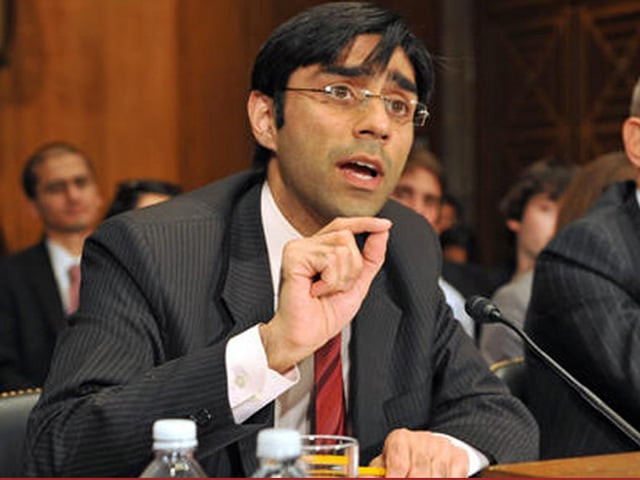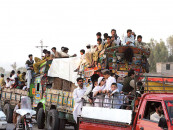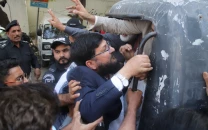Pakistan asks US not to abandon Afghanistan
Washington’s complete detachment would allow Al Qaeda to regroup, NSA, ISI chief tell US officials

When National Security Adviser (NSA) Dr Moeed Yusuf and Inter-Services Intelligence (ISI) Director General Lt General Faiz Hameed arrived in Washington last week, there were no photo ops or any fanfare about their visit taking place at a critical juncture.
The NSA and the ISI chief met concerned officials during their stay in the US capital but the only statement was from the US NSA, Jake Sullivan, who tweeted after meeting Dr Moeed and Lt Gen Faiz.
But Dr Moeed was not bothered about it, insisting the PTI government’s US policy is “pragmatic and unapologetic, but not boastful” and urged people not to look for “big pictures and all-embracing headlines”. He on Sunday said the focus of the visit was more on substance than optics.
Behind the scene there were indeed substantive discussions focused largely on the Afghan endgame and future of Pakistan-US ties, sources familiar with the development told The Express Tribune.
Read: 'US really messed it up in Afghanistan': PM Imran
According to the sources, the NSA and the ISI chief delivered a message to the US authorities, warning them not to abandon Afghanistan. The US was told that the complete detachment of the US from Afghanistan after their troops’ withdrawal would allow terrorist outfits such as Al Qaeda to regroup and eventually become a security threat not only to the region but also to Washington.
Pakistan wants the US to remain engaged with the Afghan situation in order to ensure that there is some political settlement after its withdrawal instead of civil war. Prime Minister Imran Khan also recently criticised the US approach and blamed Washington for the Afghan mess.
The worry in Pakistan is that the US may abandon Afghanistan altogether leaving regional countries to face the blowback of a potential civil war in Afghanistan. It is because of this reason that Pakistan has been working with regional countries including Russia and China to prevent the civil war in Afghanistan.
Both Russia and China are also critical of the US strategy on Afghanistan and publicly blamed Washington for leaving the neighbouring country in a total mess. But given the role of the US, Pakistan, Russia and China are still seeking to engage with the Biden administration.
For this purpose senior officials of Pakistan, China, Russia and the US are scheduled to meet in Doha on August 11. The so-called “Extended Trioka” will discuss the current situation in Afghanistan and discuss ways to seek a political settlement.
Read more: US lauds Pakistan's 'sincere' efforts for peace in Afghanistan
In Washington while the NSA and the ISI director general shared Pakistan's perspective, the US conveyed its expectations. Despite Pakistan's insistence on not having a similar influence over the Afghan Taliban, the US feels Pakistan can still play an important role.
However, Dr Moeed dismissed the perception that Pakistan has great influence over the Taliban. If that was the case, Pakistan would have at least persuaded the Taliban to force out the banned Tehreek-e-Taliban Pakistan (TTP) from Afghanistan.
Pakistan and China have been pushing the Afghan Taliban to cut ties with the TTP and East Turkestan Islamic Movement ((ETIM). The Taliban in general have made a commitment that they would not allow Afghan soil to be used against any other country.
But observers are skeptical as the recent United Nations Security Council (UNSC) report suggested that the Taliban still maintain contacts with al-Qaeda and other terrorist outfits.



















COMMENTS
Comments are moderated and generally will be posted if they are on-topic and not abusive.
For more information, please see our Comments FAQ